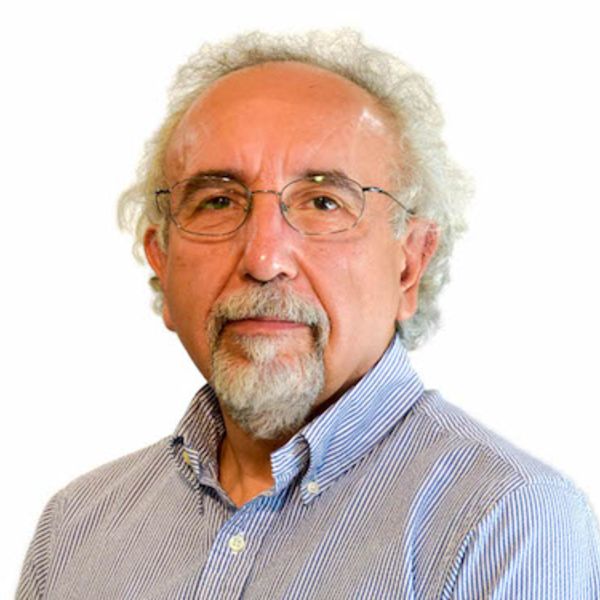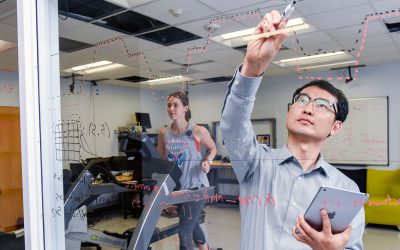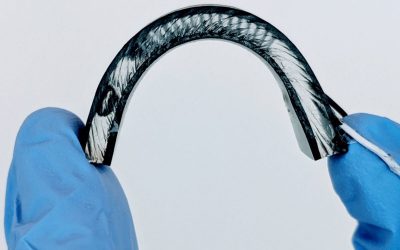Mehmet Öztürk
He/Him/His

Biography
Dr. Ozturk's research interests center around new materials, processes and device structures for nanoelectronics. He has worked on applications of low temperature epitaxy of Si and SiGe for source/drain and channel engineering and low-resistivity contacts to Si and SiGe. His current research interests center around energy harvesting, particularly flexible thermoelectric devices for body energy harvesting.
Education
-
Ph.D.
1988
Electrical Engineering
North Carolina State University, Raleigh -
Master's
1983
Electrical Engineering
Michigan Technological University, Houghton -
Bachelor's
1980
Electrical Engineering
Bogazici University, Istanbul
Research Focus
Recent Publications
- A comprehensive analytical model for thermoelectric body heat harvesting incorporating the impact of human metabolism and physical activity (2022)
- Microporous vertically aligned CNT nanocomposites with tunable properties for use in flexible heat sinks (2022)
- Aerosol Spray Deposition of Liquid Metal and Elastomer Coatings for Rapid Processing of Stretchable Electronics (2021)
- Energy Harvesting and Storage with Soft and Stretchable Materials (2021)
- Flexible thermoelectric generator with liquid metal interconnects and low thermal conductivity silicone filler (2021)
- IEEE ACCESS SPECIAL SECTION EDITORIAL: ENERGY HARVESTING TECHNOLOGIES FOR WEARABLE AND IMPLANTABLE DEVICES (2021)
- Flexible thermoelectric generators for body heat harvesting - Enhanced device performance using high thermal conductivity elastomer encapsulation on liquid metal interconnects (2020)
- Review of wearable thermoelectric energy harvesting: From body temperature to electronic systems (2020)
- Thermoelectric generators for wearable body heat harvesting: Material and device concurrent optimization (2020)
- High Thermal Conductivity Silicone Elastomer Doped with Graphene Nanoplatelets and Eutectic GaIn Liquid Metal Alloy (2019)
Highlighted Awards
Awards & Honors
- 2009 - IEEE Fellow, Contributions to Silicon and Silicon-Germanium Epitaxy in Complementary Metal-Oxide Semiconductor Integrated Circuits
- 2006 - IEEE Undergraduate ECE Teacher of the Year Award (NC State)
- 2005 - IEEE Senior Member
- 1995 - Presidential Faculty Fellow Award
Recent News

Aysu and Ozturk Recipients of ECE Faculty Awards
Posted on October 20, 2020 | Filed Under: Awards
ECE is proud to announce that Aydin Aysu and Mehmet Ozturk are the 2020 recipients of the Departmental Faculty Awards — the Bennet Faculty Fellow Award and the William F. Lane Outstanding Teaching Award.

Check-Up
Posted on May 20, 2020 | Filed Under: Research
Platforms developed in the Center for Advanced Self- Powered Systems of Integrated Sensors and Technologies (ASSIST) allow for a wide range of health applications

Wearable Health Tech Gets Efficiency Upgrade
Posted on January 30, 2020 | Filed Under: Research
NC State engineers led by Mehmet Ozturk have demonstrated a flexible device that harvests the heat energy from the human body to monitor health.
Media Mentions

Soon, wearable devices can be charged with body heat
June 27, 2017
We wanted to design a flexible thermoelectric harvester that does not compromise on the material quality of rigid devices yet provides similar or better efficiency, said Mehmet Ozturk, a professor at North Carolina State University in the US. Using rigid devices is not the best option when you consider a number of different factors. Superior contact resistance – or skin contact – with flexible devices, as well as the ergonomic and comfort considerations to the device wearer, researchers said.
